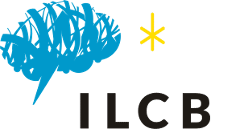Abstract
Studying social cognitive neuroscience is crucial for understanding the physiological foundations of complex behaviours, as it bridges the gap between neural mechanisms and intricated human interactions. This is an important topic in a period when a social species such as the human, is desocializing, privileging virtual communication to real social interactions. Understanding how natural social interactions act on the brain, how their reduction or enrichment could affect the brain and therefore our health is an important subjec to study.
This workshop organized at the INT (Salle Gastaud) aims to explore, through 4 complementary sessions, i) the neural underpinnings of social cognition, ii) how representing other’s shapes our behaviour and iii) the consequences of a dysregulation of this system. The expected line-up includes outstanding speakers covering aspects of social cognition that we deem essential to advance on the transversal axis “Social Cognition” at the INT. Speakers are being chosen to present the state of the art on relevant aspects of social cognition through their latest research, covering various levels of approach - genetics, behavior, electrophysiology or fMRI ... - and various animal models - from rodents to primates.
A plenary lecture will be given by Prof. Didier Grandjean from University of Geneva.
Program
Thursday September 25th
9h15-9h30 Introduction
Frédéric Chavane
The INT and the transversal axis "Social Cognitive Neuroscience"
9h30-12h30 Investigating dysfunctions of social processing
9h30 Eduardo Gascon, INT CNRS Researcher
What is done at INT
Data blitz from young fellows - Lucie Vignal
10h10 Françoise Muscatelli, INSERM Research Director, Marseille (France)
Developmental alterations in the oxytocin system modify early feeding and social behavior in Prader-Willi syndrome
10h50 Coffee break
11h10 Adrien Meguerditchian, CNRS Research Director, Marseille (France)
Brain size & structural hemispheric specialization in relation to sociality in baboons
11h50 Angela Sirigu, CNRS Research Director, Lyon (France)
Understanding Social Behavior: Brain and Mind Across Species
12h30 Lunch
14h00-17h00 Vocal support of social interactions
14h00 Pascal Belin, INT AMU professor
What is done at INT
Data blitz from young fellows - Yoan Esposito - Julie Meffre
14h40 David Omer, Researcher, Hebrew University of Jerusalem, Jerusalem (Israel)
“The Naming of Nonhuman Primates”: Vocal Labeling of Others by Nonhuman Primates
15h20 Coffee break
15h40 Markus Wöhr, Professor, U Leuven (Belgium)
Rodent Ultrasonic Communication
16h20 Arthur Lefevre, CNRS Researcher, Lyon (France)
Primate ACC encodes natural vocal interactions in a ‘cocktail party’
Friday September 26th
9h00-12h30 Social interactions
9h00 Thierry Chaminade, INT CNRS Researcher
What is done at INT
Data blitz from young fellows - Camilla Di Pasquasio
9h40 Heidi Lesscher, Associate Professor, U Utrecht (The Netherlands)
Healthy Play Better Coping - a multispecies perspective on the impact of social play
10h20 Coffee break
10h40 Sebastien Möller, Researcher, U Göttingen (Germany)
Neural correlates of dynamic social coordination in macaque premotor cortex
11h20 Adam Smith, Associate Professor, University of Kansas, Lawrence (USA)
The Neurobiology of Social Attachment, Conflict, and Loss
12h00 Lunch
13h00 Plenary lecture
Didier Grandjean, Full Professor, University of Geneva, Geneva (Switzerland)
Emotions at the roots of social cognition
14h00-16h30 How social representations affect various behaviours?
14h00 Christelle Baunez, INT CNRS Research Director
What is done at INT
Data blitz from young fellows - Damiano Terenzi - Simon Nougaret
14h40 Coffee break
15h00 Sarah Mondoloni, Post-doc, INMED, Marseille (France)
From emotional contagion to resilience – A serotonin-dependent plasticity in the habenula
15h40 Jo Cutler, Post-doc, U Birmingham (Great-Britain)
Neurocomputational mechanisms of prosocial behaviours over time
16h20 Conclusions-Discussion
Sponsors


 " class="logo_img" />
" class="logo_img" />


